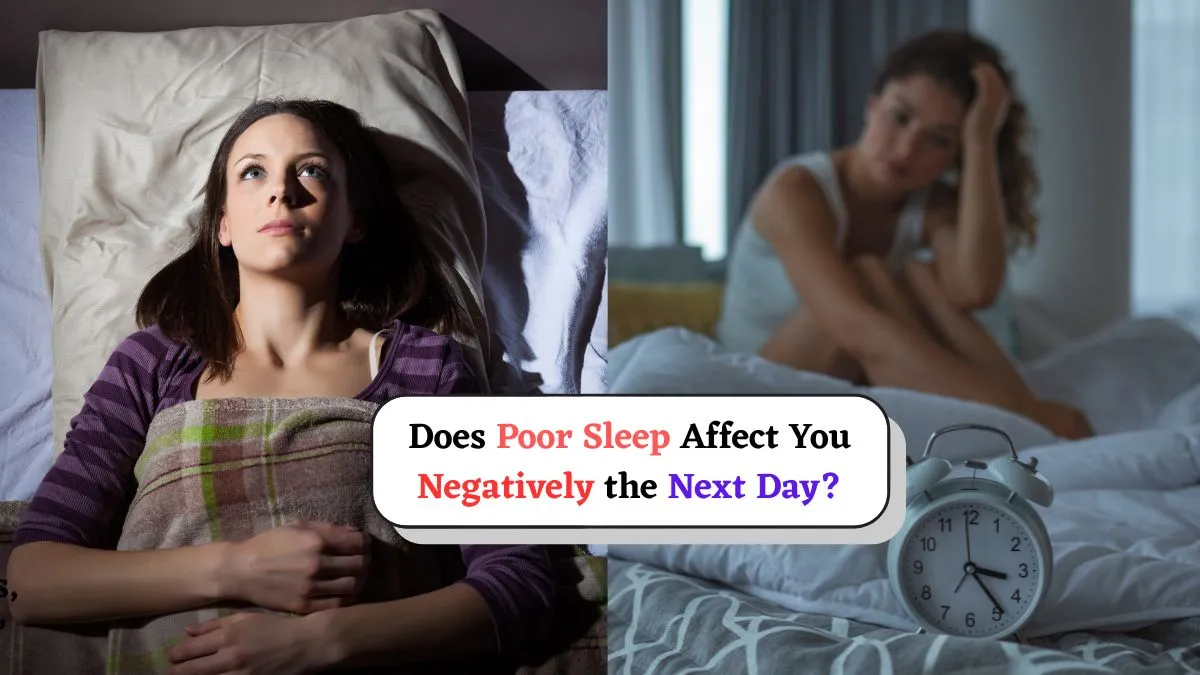- By Aditi Priya Singh
- Thu, 18 Sep 2025 08:03 PM (IST)
- Source:JND
Does Poor Sleep Cause More Negative Emotions: Sleep is one of the most effective ways for human bodies to maintain their health and happiness. Usually, we start a fresh and rejuvenated day after having a restful sound sleep at night and prepare to face the day. But when we don't get enough sleep, everything can feel more difficult; our emotions can become more sensitive and even minor issues can seem like big ones. Researchers have found that our brains and moods can be significantly affected by a single night of inadequate sleep.
NCIB studies show that it can increase negative emotions by up to 60% the very next day. Researchers investigated the effects of inadequate sleep using a brain scanning technique known as functional magnetic resonance imaging (fMRI). They discovered that the brain reacts to negative emotions 60% more strongly after just one night of inadequate sleep than it does after a typical night's sleep.
This suggests that after just one sleepless night, you are more likely to feel depressed, anxious, or irritable. Understanding how sleep affects our emotions can help us take better care of our mental and emotional well-being. Let's look at the scientific data proving this connection and the importance of sleep for mood.
Amygdala In Brain Is The Reason For Negative Emotions After Poor Sleep
The amygdala, a tiny, almond-shaped region of the brain, is the cause of this. Our emotions, stress, and fear response are regulated by the amygdala. Because the amygdala is more sensitive when you don't get enough sleep, even minor negative things seem more significant and difficult to deal with.
ALSO READ: How Late Night Habits Are Harming Your Well-Being? 5 Practical Tips To Restore Sleep And Health
How Poor Sleep Affects the Brain
Our brains process stress, memories and emotions while we sleep. Sleep deprivation interferes with this process.
It lessens activity in the area of the brain responsible for emotions and judgement. It causes the area that responds to stress and fear to become more active. This imbalance intensifies negative emotions and makes them more difficult to control the following day.
Rise in Negative Emotions
According to studies, those who don't get enough good sleep have the following effects:
* Higher levels of stress and anxiety
* Increased irritability and mood swings
* Less patience with others
* Difficulty finding joy in positive moments
This explains why even small problems feel overwhelming after a sleepless night.
Why Good Sleep Improves Mood
Getting 7–8 hours of good sleep helps:
* Balance hormones like (stress hormone)
* Support healthy brain function
* Improve memory, focus, and emotional regulation
This helps you wake up feeling calmer, happier, and more in control of your emotions.
Simple Tips to Sleep Better
* Keep a regular sleep schedule
* Avoid caffeine late in the day
* Limit screen time before bed
* Create a calm and dark sleeping space
* Practice relaxing habits like deep breathing or reading
ALSO READ: How Many Hours Of Sleep Do You Really Need For Good Health?
The next day's thoughts and emotions can be impacted by even one sleep-deprived night. It can make life more difficult by increasing stress, sadness, and irritability. Prioritising sleep allows your body and mind to rest and maintain emotional stability. A rested mind is a more contented mind!
